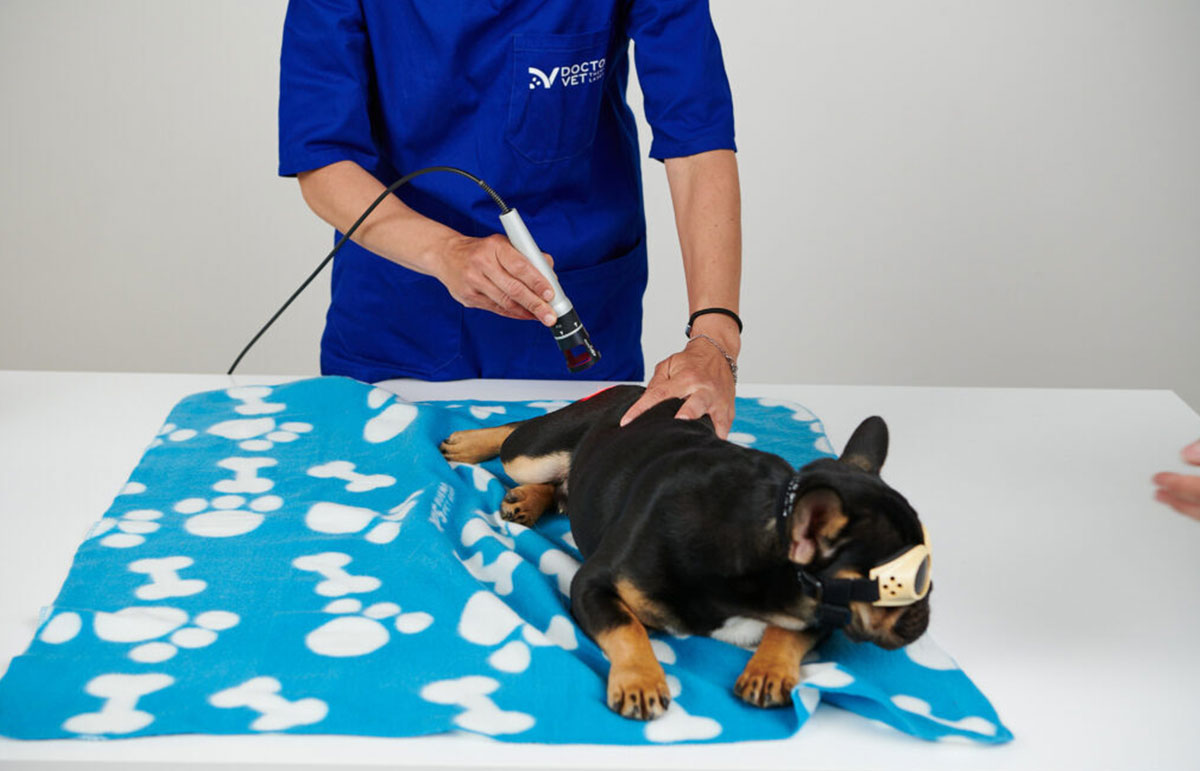Allergy and Dermatology Testing

Your dogs and cats do not have to suffer due to allergies. Allergies are caused by an immune reaction to a specific allergen in the
environment (atopy) or food. Pet allergies often present as chewing of the feet, itchiness of the face or tail region, focal patches, or recurrent ear infections. Allergy testing may be used to uncover the substances in your pet’s environment that may be causing a reaction, while food trials using a unique protein or carbohydrate source may be utilized to identify the allergy source in a particular diet. Based on these results, a longer-term treatment plan or diet change may be created. Certain environmental allergens are nearly impossible to avoid but, in some cases, immunotherapy vaccinations may help your pet develop a tolerance to the substance causing the allergy thereby dramatically reducing any itchiness, redness, or infection.
Avian Care

Birds are very fragile animals and, yet, hide illness and disease very well. Annual wellness examinations are recommended for all
birds, large and small, to identify any disease processes, lesions, or metabolic changes early in its development when treatment may be most effective. During this exam we will weigh and examine your bird from beak to tail. Depending on your bird’s age, medical history, and exam findings we may recommend blood work to further assess their health or disease process identified. We may also trim your bird’s beak, nails and wings if necessary.
Blood Tests and Urine Screening

Routine blood work and urinalysis helps our veterinarians acquire information about your pet’s health that might not be seen
during a physical exam. Such assessments help to identify potential issues early in the course when they may best be treated. A Serum Analysis (SMA) assesses liver, kidney, electrolytes, and protein levels. Early renal disease, toxin exposure, Cushing’s Disease, and Liver changes may all be detected from this test. Other blood such as a Pro-BNT looks at cardiac levels to determine possible cardiac damage. A Complete Blood Count (CBC) looks at Red Blood Cells, White Blood Cells and Platelets as well as their relative levels. From the CBC, infection, parasitic infestation, certain cancers, and anemia may be identified. A urinalysis assess the kidney function as well as the composition of the urine produced. Kidney diseases, diabetes, and urinary tract infections may be detected through a urinalysis.
Canine and Feline Dental Care

It is estimated that 70-80% of all cats and dogs that are two years and older suffer from dental diseases including gingivitis and
periodontitis. Just like in people, these conditions may be difficult to detect under the gum line, but cause extraordinary discomfort. Periodontal disease is a progressive disorder affecting the teeth and gums, which is caused by a build-up of plaque and tartar on the tooth’s surface. Without adequate care and attention, periodontal disease can result in inflammation, bad breath, irreversible damage to gums, premature loss of teeth, and infections that can affect other organs in the body such as the heart, liver and kidneys.
Proper Dental procedures start with a thorough cleaning and polishing of all of the teeth. Plaque and tartar are carefully removed from the crown of your pet’s teeth and from under the gum line. However, like an iceberg, most dental problems originate below the gum line. Full mouth dental X-rays are taken to determine the structural integrity of each tooth and surrounding bone to identify tooth root infections, abscess formation, or bone deterioration. From these x-rays, the proper course of treatment may be determined or if extractions are required. Finally, each tooth surface is thoroughly polished to smooth any rough surfaces and most pets will be given a fluoride treatment to help strengthen and preserve your pets teeth long into the future.
Proper Dental procedures start with a thorough cleaning and polishing of all of the teeth. Plaque and tartar are carefully removed from the crown of your pet’s teeth and from under the gum line. However, like an iceberg, most dental problems originate below the gum line. Full mouth dental X-rays are taken to determine the structural integrity of each tooth and surrounding bone to identify tooth root infections, abscess formation, or bone deterioration. From these x-rays, the proper course of treatment may be determined or if extractions are required. Finally, each tooth surface is thoroughly polished to smooth any rough surfaces and most pets will be given a fluoride treatment to help strengthen and preserve your pets teeth long into the future.
Cardiology Care

Cardiac function affects every organ system in the body. But, just like in people, heart changes can progress quietly and undetected for years
before significant cardiac diseases are noted. Many cardiac changes develop as our pets grow older, while others are breed or species specific. Older dogs are predisposed to heart valve deterioration and congestive heart failure. Breeds such as Dobermans and Cavaliers King Charles have a genetic predisposition to Dilatative Cardiomyopathy. Older cats may develop Hypertrophic Cardiomyopathy. Both cats and dogs may be exposed to heartworm and Heartworm Disease.
Our advanced equipment allows us to accurately determine the health of your pet’s heart before significant changes occur. Blood test such as an SMA and Cardiac Pro-BNT assess the impact of cardiac output as well as the health of the heart and body overall. Thoracic x-ray can identify changes to heart size, vascular congestion, and changes to the lungs. An ECG or electrocardiogram may assess heart size, but, more importantly, assesses heart rate and rhythm. An ECG measures the electrical activity of the heart and can be essential in diagnosing certain heart problems such as Atrial Fibrillation and VPC’s. Checking blood pressure is recommended to determine if their blood pressure is in healthy range before it may affect the heart, kidneys, or retinas.
Our advanced equipment allows us to accurately determine the health of your pet’s heart before significant changes occur. Blood test such as an SMA and Cardiac Pro-BNT assess the impact of cardiac output as well as the health of the heart and body overall. Thoracic x-ray can identify changes to heart size, vascular congestion, and changes to the lungs. An ECG or electrocardiogram may assess heart size, but, more importantly, assesses heart rate and rhythm. An ECG measures the electrical activity of the heart and can be essential in diagnosing certain heart problems such as Atrial Fibrillation and VPC’s. Checking blood pressure is recommended to determine if their blood pressure is in healthy range before it may affect the heart, kidneys, or retinas.
Cold Laser Therapy

Cold laser Therapy (CLT) is the future of veterinary medicine and uses photobiographic waves to dramatically reduce inflammation,
swelling, edema, and discomfort. CLT is commonly used after surgical procedures to promote healing and reduce post-operative inflammation and discomfort. In older dogs and cats, CLT may be used with numerous other therapies to reduce joint inflammation, osteoarthritis, and muscle injuries. Other conditions that benefit from CLT include, but are not limited to, muscle sprains, bone fractures, soft tissue wounds, skin lacerations, ear infections and hematomas, nerve inflammation, and joint injuries. Laser therapy is a drug-free, surgery-free and pain-free procedure that only takes minutes to perform.
Digital X-Ray

X-rays are extremely important for diagnosing and monitoring many medical and surgical conditions. Our Cuattro DR is a state-of-the-art digital x-
ray unit that allows us to capture and interpret computerized digital x-rays quickly, more effectively, and with far greater detail than ever before. Digital x-rays allow far more significant image enhancement, enlargement, and image manipulation, so the smallest changes may be detected far earlier than traditional radiographs. Digital radiographs also allow us to send x-rays immediately to veterinary radiologist, cardiologists, orthopedic surgeons, and specialists around the world when additional consultation is needed quickly.
Emergency Care

Emergencies are unpredictable and, often, unpreventable accidents that may happen anytime day or night. Hit by cars, porcupine quills, toxin
exposure, bite wounds, and lacerations are just a few of the emergencies we see every week.
We understand the stress and anxiety that comes with an animal emergency which is why we are networked with West Mountain Animal Hospital and Green Mountain Animal Hospital, to provide 24 hours emergency care for our clients. In addition to this network, we work with 24-hour overnight facilities in Latham and Saratoga when more advanced overnight monitoring is required. Please do not hesitate to call us if you are concerned that your pet may need emergency treatment.
We understand the stress and anxiety that comes with an animal emergency which is why we are networked with West Mountain Animal Hospital and Green Mountain Animal Hospital, to provide 24 hours emergency care for our clients. In addition to this network, we work with 24-hour overnight facilities in Latham and Saratoga when more advanced overnight monitoring is required. Please do not hesitate to call us if you are concerned that your pet may need emergency treatment.
End-Of-Life Care

We are dedicated to making your pet as comfortable as possible during the remainder of their lives. If your pet is terminally ill,
we will provide medication and recommendations so your pet isn’t suffering and has the highest quality of life possible for as long as possible. If an acceptable quality of life can no longer be maintained, we can discuss humane euthanasia. Our hospital works closely with Infinity Cremation Services to help provide continued assistance for per owner’s at this final stage of their pets life. Be mindful that we are advocates for your pet and any recommendations we make are to ensure your pet doesn't suffer.
Exotic Pet Care

Bringing your exotic pets to the veterinarian is just as important as any other pet. Each exotic pet whether it is a snake, turtle, lizard, guinea
pig, or ferret has its own unique dietary, health, and home care requirements with which most owners are unfamiliar. Furthermore, exotic pets hide
their disease symptoms extremely well and maybe far along in the disease process or simply too sick to hide their illness before owners notice a change. Bringing your pet in for annual wellness exams allow our veterinarians and pet owners to discuss dietary or home care changes to best care for their exotic pets. More importantly, a thorough annual examination will help identify health changes or early disease issues while they are still treatable. Preventing exotic diseases helps to ensure your pet lives the longest, healthiest life as possible.
their disease symptoms extremely well and maybe far along in the disease process or simply too sick to hide their illness before owners notice a change. Bringing your pet in for annual wellness exams allow our veterinarians and pet owners to discuss dietary or home care changes to best care for their exotic pets. More importantly, a thorough annual examination will help identify health changes or early disease issues while they are still treatable. Preventing exotic diseases helps to ensure your pet lives the longest, healthiest life as possible.
Eye Care

Eyes and vision loss can be very unforgiving. Meaning, if your pet is squinting, tearing, has any changes with the cornea or pupil sizes, or any
vision changes noted, then an examination is in order sooner rather than later. Corneal scratches, ulcers, foreign bodies such as thorns, dry eye, glaucoma, trauma, and cataracts are just a few of the changes we see at our hospital. From our thorough physical examination, a definitive diagnostic and treatment plan may be established. KCS or Dry Eye is also a common older pet condition that is easily remedied once diagnosed. Glaucoma is another common ocular change in both pets and people that can lead to blindness if left untreated. We use a state of the art tonopen to detect the early stages of glaucoma before more permanent ocular changes develop.
House Calls

House Calls are another service reserved for our clients. If you are unable to drive or your pet becomes extremely anxious when coming to the hospital,
perhaps an examination at home may be a better option. We also offer house calls for euthanasia if you would rather be in the comfort of your own home when saying goodbye to your loved pet.
Flea and Tick Prevention

Fleas and ticks not only cause enormous irritation for both pets and people, but they are also the vehicle for many common diseases
including Lyme,Ehrlichea, Anaplasmosis, and a host of other tick bourn and parasitic diseases. A part of ensuring your pet is in good health is providing flea and tick preventatives. Prevention is important because it stops a serious problem before it starts. For every flea you see on your pet there may be hundreds more in your home. It is better for your pet’s health and more cost effective to prevent fleas rather than waiting and then trying to eliminate a flea infestation. Ticks are present almost year-round and are responsible for carrying a number of different diseases that can infect your pet, including Lyme disease. We live in a tick endemic region, increasing the likelihood that your pet will be exposed to ticks at some point in it’s life. We highly recommend giving your pet a tick preventative to decrease their risk of contracting a tick borne illness. Our doctors will recommend what preventative they feel are best for your pet.
Heartworm Preventative

Heartworms are contracted from the bite of a mosquito and can infect both cats and dogs. We all know that mosquitoes make it into our
homes so even if your pet is strictly an indoor pet, they are still at risk of heartworm. More importantly, with the extensive human travel today and the movement of dogs after the numerous hurricanes down south, Heartworm is prominent in our area again. While easy to prevent, Heartworm Disease can be challenging and expensive to eliminate.
In-House Laboratory

For both convenience and necessity, our hospital is equipped with in-house laboratory equipment to provide you with more immediate results
when needed. These services include in-house fecal analysis, to look for parasites, blood tests to check liver, kidney, and electrolyte values, and snap tests, for both tick-borne diseases and heart worm and for feline leukemia and FIV using a small drop of your pet’s blood.
Microchipping

Do you ever worry about losing your pet? Microchipping your pet can help put you at ease. If your pet is lost and is taken to a veterinary hospital or
shelter, it can be scanned for a microchip and if present will provide the needed contact information to reunite you and your pet. According to the American Humane Association, approximately 10 million pets are lost every year and of those, 6 million end up in shelters. Without a form of identification, most pets are unlikely to make it home to their worried owners. Even if your pet has a collar and tag, these forms of identification can fall off or be removed which is why microchipping is so important. The microchip is inserted like a vaccination into the scruff of your pet’s neck and will provide a reliable form of identification for the rest of their life.
Nutritional Consultations

Proper diet and nutrition are two of the most important factors in maintaining your pet’s health over a life time. A balanced and properly proportioned
diet ensures a healthy weight and proper nutrients given your pets age, activities, and breed. With so much marketing and misinformation, it can be very difficult to determine the best or most appropriate diet for your pet. Nutritional consultation becomes even more important when a medical issue requires a change from the standard maintenance diet. Our team can assist you to options for the best and most appropriate diet based on your pet’s current weight, health, and medical needs.
Orthopedic Surgery

Orthopedic issues are very common in active pets and may arise from numerous origins including genetics, breed, and congenital etiologies to
trauma and athletic injuries. Dr. Rebecca M. Stanclift, DVM ACVS, is board certified through the American Association of Veterinary Surgeons (ACVS) and provides the highest standard of veterinary surgery and orthopedic procedures in our own hospital. Equally important, through our state-of-the-art digital x-ray unit, she and a host of boarded radiologists are available for consultation before, during, and after any orthopedic or surgical procedure.
Parasite Testing and Treatment

Dogs and cats are commonly exposed to and infected with a host of gastrointestinal parasites and other parasites throughout their lives.
If left undetected and untreated, these parasites may cause a variety of illnesses and clinical signs including vomiting, diarrhea, weight loss, and anemia. Some of these parasites may be spread to people. Such parasites include fleas, ticks and mites, as well as a variety of intestinal parasites and tape worms. It is important to have your pet checked annually for parasites including an annual fecal analysis to help prevent internal and zoonotic diseases.
Puppy and Kitten Care

Puppies and kittens grow at a rapid rate and require significant attention in their early formative years. It is important that you bring your new puppy
or kitten in for a complete examination as soon as possible. This examination will help ensure your new pet is free of congenital issues and properly screened for fleas, ticks, ear mites, and intestinal parasites as well as a host of other congenital issues that may impact the health of your new pet. Young pets have an immature immune system, making it difficult for them to fight off common diseases. Vaccinations are the best preventative measure you can take for your pet’s health to help prevent a host of serious bacterial and viral diseases. It is recommended that puppies and kittens come in at 8, 12 and 16 weeks of age to receive appropriate vaccinations, discuss and address common parasite and diseases, as well as discuss the appropriate age for spaying and neutering if desired.
Senior Wellness

Just like in people, older pets requires a different health and wellness plan than was necessary in their younger days. Our senior pets are
at an increased risk of developing numerous age- related diseases including diabetes, glaucoma, osteoarthritis, renal disease, heart disease, dental disease, cancer, and both hyper and hypothyroidism. Not all pets exhibit visible symptoms until far along in the course of the disease when treatment is more difficult. A senior wellness examination and testing will help to identify, prevent, or address the many age related diseases that may impact the long term health of our older and more delicate pets.
Soft Tissue Surgery

Our hospital is equipped for most major surgical procedures, including spays and neuters, tumor removal, biopsy and tissue cultures,
abdominal and intestinal surgeries, orthopedic procedures, and emergency surgeries as needed. Before any anesthetic or surgical procedure, each patient receives a thorough physical examination and undergoes a series of pre-anesthetic blood and urine testing to ensure any anesthetic procedure is as safe as possible. IV catheters, IV fluids, multiple anesthetic monitoring equipment, and a trained technician is utilized during every anesthetic and surgical procedure to ensure these events are conducted as safely and carefully as possible. Post-operative analgesics may then be customized based on the age, health, breed, pre-anesthetic test results, and surgical procedure performed to ensure your pet is safe, healthy, and comfortable during the recovery stages at home after anesthesia.
Ultrasound

An ultrasound is a pain free, non-invasive procedure that uses sound waves to provide real time examination and images of internal organs and
structures to assess their shape, size, structure, and potential changes. Our hospital has two ultrasound units that we use daily depending on the need or organ system to be assessed. Ultrasound examination can help discover tumors, masses or foreign bodies in the abdomen, assess heart function and cardiac changes, look for bladder stones or tumors, and help us to get a sterile urine sample without the invasiveness of surgery or general anesthesia. Due to the state-of-the-art quality of our U/S units, these studies may be sent to specialists around the world for more thorough consultation if needed.
Vaccinations

Bacterial, viral, and parasitic diseases are changing all the time. The increased likelihood of exposure to such diseases by our pets also dramatically
increases with our society as people travel more with their pets, transport of animals across the country and the world, as well as the dramatic changes in the climate and environment. Vaccinations are an essential part of your pet’s health care plan based upon need and likelihood of exposure. Each vaccination works differently. Vaccines are used in preventing canine distemper, parvovirus, bordetella (kennel cough), rabies, lyme disease, leptospirosis, and influenza found in dogs along with feline leukemia, distemper, and rabies in cats. Our veterinarians will recommend only the appropriate vaccinations your pet may need based on their lifestyle, health, and likelihood of exposure.
Wellness Exams

Regular wellness exams are the best way to keep your pet healthy and prevent disease and illness before they become difficult and costly to treat. Such
examinations may be accompanied with routine blood work, fecal analysis, and urine screenings as needed. Appropriate vaccinations may be completed at this time as warranted. We recommend annual wellness exams to ensure your pet receives the best preventative medicine and that any problems with their health can be addressed early when treatment is safest and most effective.


